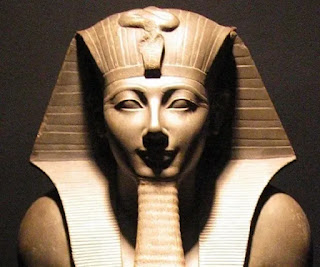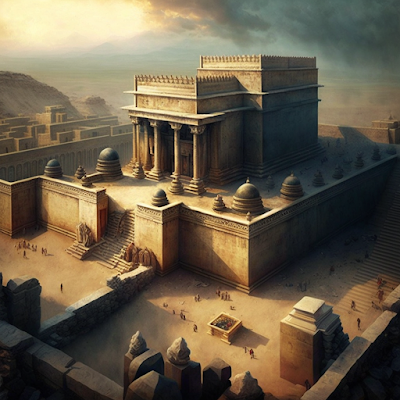Thutmose III
Thutmose III was one of the most powerful pharaohs of ancient Egypt, who ruled for almost fifty-four years during the New Kingdom period (1479-1425 BC). He is known for his military campaigns, architectural achievements, and cultural reforms that made him one of the greatest rulers in Egyptian history.
Thutmose III was the sixth pharaoh of the Eighteenth Dynasty and succeeded his father, Thutmose II, at a young age. During the early years of his reign, he shared power with his stepmother, Hatshepsut, who acted as a regent and eventually declared herself pharaoh. Thutmose III accepted this arrangement and served as her co-regent until her death in 1458 BC. After that, he assumed full control of the throne and embarked on a series of military campaigns that expanded the Egyptian empire and secured its borders.
Thutmose III's military campaigns were some of the most successful in Egyptian history. He led at least seventeen campaigns across the Levant and Nubia, capturing numerous cities and territories and establishing Egypt's dominance in the region. He was a skilled strategist who used a combination of force and diplomacy to achieve his goals. He also introduced new military tactics, such as the use of the chariot and the composite bow, which gave his army a significant advantage over their enemies.
Apart from his military conquests, Thutmose III was also a great builder and patron of the arts. He commissioned several architectural projects, including the temple of Amun at Karnak, the temple of Hatshepsut at Deir el-Bahri, and the tomb of his father, Thutmose II, in the Valley of the Kings. He also promoted the arts and literature, commissioning several works that celebrated his military achievements and religious devotion.
Thutmose III's reign also saw significant cultural and religious reforms. He was a devout follower of the god Amun and dedicated much of his reign to the worship and glorification of this deity. He established several festivals and religious ceremonies that honored Amun, and built several temples and shrines dedicated to him. He also established the cult of the god Aten, which would later be elevated to prominence by his grandson, Akhenaten.




Comments
Post a Comment